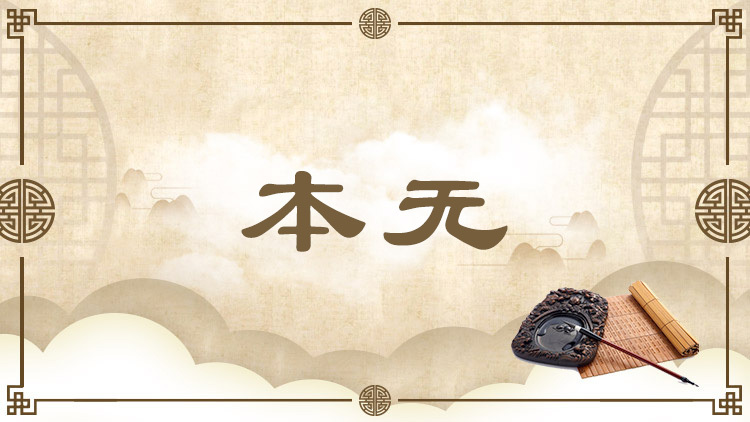
绝对的空无。东晋时各家多用“本无”表达般若空义,指出事物根本上是不存在的。这种观点在僧肇等人看来有将“无”坐实、落入虚无主义的危险,故僧肇著文批评,重申缘起性空的中道观。但在后世作品中,同样运用“本无”,有时指缘起性空义,而非绝对的虚无,需加以鉴别。
Benwu, or original non-being, is a term used to refer to void. Philosophical schools in the Eastern Jin Dynasty used it to bracket the doctrine of emptiness from the Prajñāpāramitā literature ("The Perfection of Wisdom"), arguing that things are fundamentally non-existent. In the view of Seng Zhao and the like, the pitfall of this standpoint, by emphasizing the absolute "emptiness," is an inclination towards nihilism (which is expressively rejected by Buddhist doctrines). Seng Zhao thus criticized it through his writings: here affirmed the middle way (away from the two extremes of nihilism and eternalism), thus interpreted the emptiness as the dependent origination. This term benwu can also be found in the works of later generations. In certain cases, however, it was reinvented to be the "emptiness as the dependent origination" rather than "absolute emptiness." So, one should be cautious about its various connotations in different historical context.
引例 Citation:
◎本无者,情尚于无,多触言以宾无。故非有,有即无;非无,无亦无。寻夫立文之本旨者,直以非有非真有,非无非真无耳。何必非有无此有,非无无彼无?此直好无之谈,岂谓顺通事实,即物之情哉!(僧肇《肇论·不真空论》)
主张本无的教义,专注于虚无,凡出言便说是“无”。所以他们讲“有(存在)”是不真实的,“有”就是无;“无(不存在)”也是不真实的,“无”也是无。但若去探求他们的(经典)依据,不过是说“非有”并非真实的存在,“非无”也并非真的不存在。(倘若如此,)又何必坚称“非有”就是指存在者根本没有,“非无”就是指不存在者也根本没有呢?这仅仅是好谈“无”的人的言论,怎能称之为通达事实、触及事物的真性呢?
The teaching of "original non-being" is obsessed with nothingness, which thoroughly dominates their discussion. They reject "being," because it is nonexistent. They also reject "non-being," because again non-being is neither existent. But if we look into the scriptures they alluded to, we will see that these texts actually reject the real "being" by naming "non-being" while reject real "non-being" as a refutation of substantialized non-being. Then why on earth should they insist that the negation of "being" is absolutely non-existent and the negation of "non-being" as if the non-being is actually nonexistent? They are just too much into their "nothingness"! How could they enter the reality without hindrance, and approach the true character of things? (Seng Zhao: Treatise of Seng Zhao)
推荐:教育部 国家语委
供稿:北京外国语大学 外语教学与研究出版社
责任编辑:钱耐安





